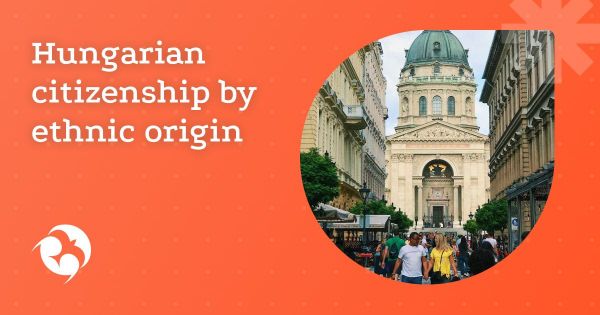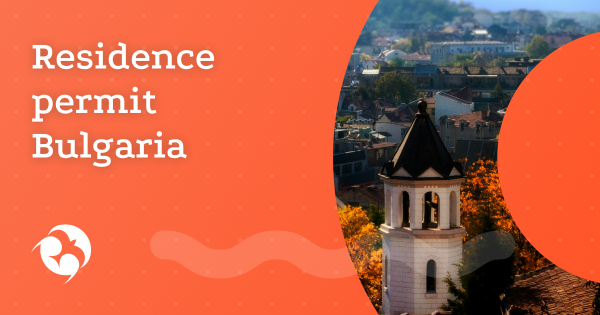Repatriation to Hungary is a government program of the country aimed at facilitating relocation and granting citizenship to foreigners with documented Hungarian roots. This process is regulated by the Law on Citizenship, which is based on article 6 of the country’s Constitution. According to it, the state is “responsible for all Hungarians,” including those living abroad. The law itself allows anyone whose direct affiliation to Hungarians (magyarok) has been proven with the help of documents to apply for citizenship under an accelerated scheme.
Advantages of Hungarian citizenship
Having a passport of this country opens up the following possibilities:
- Freedom of travel. Hungarian citizens travel to 171 countries without obtaining a visa. They are allowed to freely visit not only all EU countries, but also Japan and Hong Kong. For trips to the USA, Canada and Australia, Hungarians request an electronic visa 3 days before the flight. To legally spend more than 3 months in France or Spain in six months, it is enough to register residence at a permanent address and notify the district police department.
- Security. Hungary has a low crime rate, and the locals are calm and friendly towards visitors.
- Access to European banks. A Hungarian citizen can open an account, transfer money, take out loans for the purchase of household and work necessities, apply for a mortgage, and invest in securities.
- Free employment in the European Union. You can officially work not only in Hungary itself, but also in other EU countries.
- Free service in public clinics. As in other EU countries, high-quality medical services are provided to citizens in Hungary. To access them, you need to apply for an insurance policy. The document will be accepted in any state polyclinic and hospital.
- Discounts on tuition at all European universities. Education in public schools and institutes is free for citizens if they speak Hungarian. Universities in other European countries offer discounts on tuition for holders of Hungarian passports.
- The opportunity to transfer citizenship by inheritance. Minor children of foreigners who have received a Hungarian identity card also have the right to acquire citizenship.
- There is no need to renounce the citizenship of the country of origin. Abandoning it is difficult and can often take years. In the case of repatriation to Hungary, this procedure is skipped.
Categories of persons eligible for resettlement based on their roots
The following categories of foreigners can repatriate to this country and apply for citizenship under a simplified scheme:
- Children of a parent with Hungarian ancestry.
- The sons and daughters of people who have ever had a Hungarian passport.
- Foreigners whose ancestors lived in the historical territories mentioned in the Law on Citizenship.
Requirements for applicants
The main requirements for people eligible for repatriation and intending to obtain a passport under this scheme are as follows:
- proven Hungarian origin;
- absence of threats to the security of the state itself and its inhabitants;
- possibility of free communication in the local language;
- confirmed absence of criminal record in the country of origin.
Anyone wishing to obtain Hungarian citizenship on the basis of the resettlement program by roots will receive an interview with the consul in the national language. The test of conversational skills is called the “basic language test.” It is crucial to attach documents to your case that allow you to fully trace your ancestry. That is, family ties with ethnic Hungarians up to the fourth generation. The following documents are suitable as evidence:
- birth, marriage, divorce or death certificates;
- diploma of professional qualification;
- ecclesiastical certificate of Hungarian citizenship;
- extracts from metric books;
- archive search results;
- workbook.
The applicant needs to find the documents of the ancestors in the direct line, including intermediate relatives. For example, if your great-grandmother was Hungarian, the consulate will ask you to show your mother’s and grandmother’s IDs and certificates. When confirming maternal kinship, it is necessary to take into account the change of the surname from the maiden name to the one belonging to the husband. Namely, to attach a marriage certificate to the case.
To find the missing ancestral data, you should consult genealogical databases such as Forebears or FamilySearch. Both resources require knowledge of English. Another possible source of information is the National Digital Archive.
Application procedure
- The preparatory stage. The task of a foreigner is to find a basis for obtaining citizenship. That is, to collect documents proving kinship with ethnic Hungarians (up to 4 generations), and attach them to the application. You can fill out the form on the Konzinfo website. A prerequisite for reviewing the case is confirmation of non–criminal record. Certificates and certificates drawn up in a foreign language are not only translated, but also affixed with an apostille. The repatriate’s application form is also filled out in Hungarian, and they do it strictly on their own. The state fee for reviewing the application is 120 €, the receipt is attached to the case. It is also necessary to take two color photographs measuring 35 x 45 mm.
- Submission of documents to the consulate or to a government agency in the country. The case can be submitted electronically or sent for verification in a paper version. Employees of the consulate, the Bureau of Citizenship and Migration or the state registration authority will contact the candidate for repatriation to set an interview date. It lasts 15-25 minutes and requires compliance with the official dress code. During the conversation, it is necessary to answer questions about the origin, the purpose of immigration, plans for the future after moving, knowledge of history, culture and local national traditions concisely and directly.
- Consideration of the application. The Department of Simplified Naturalization is studying the cases of candidates for repatriation. The process lasts for several months. The foreigner is contacted or personally notified of the results of the inspection when visiting a government agency.
- Taking the oath and receiving documents. A few days before this event, a notification is sent to the repatriate indicating the day and time of the event. After taking the oath, the repatriate receives a certificate of naturalization, on the basis of which he can issue an internal passport (ID card) and other documents.
Controversial situations
It is highly likely that the Hungarian authorities will refuse to consider the repatriation case for such categories of applicants.:
- foreigners who have been convicted in their country of nationality;
- poor command of the Hungarian language, which makes it impossible for the applicant to communicate freely during the consular interview and fill out questionnaires without errors on his own;
- applicants who provided false information and fictitious documents;
- candidates for repatriates whom the country’s authorities deem threatening to society and the state;
- foreigners with incomplete documents confirming their kinship with ethnic Hungarians.
In difficult cases, it makes sense to act through an immigration consultant who has experience in challenging refusals to review a case and collecting supporting documents.

- We will answer all your questions
- We will help you choose the best option
- We will guide you through every step or do everything for you
Assistance in obtaining Hungarian citizenship
Repatriation to this country may be difficult for foreigners who have not previously encountered obtaining a residence permit, permanent residence, and passports from other countries. Our company’s international law specialists will help you understand this process, restore missing archival documents to prove historical ties with Hungary, and fill out applications correctly. Immigration consultants will monitor the status of the case review, explain the nuances of the interview at the consulate, and help increase the likelihood of a positive decision in controversial cases. Leave a request for consultation or comprehensive case support, taking into account your personal circumstances.






